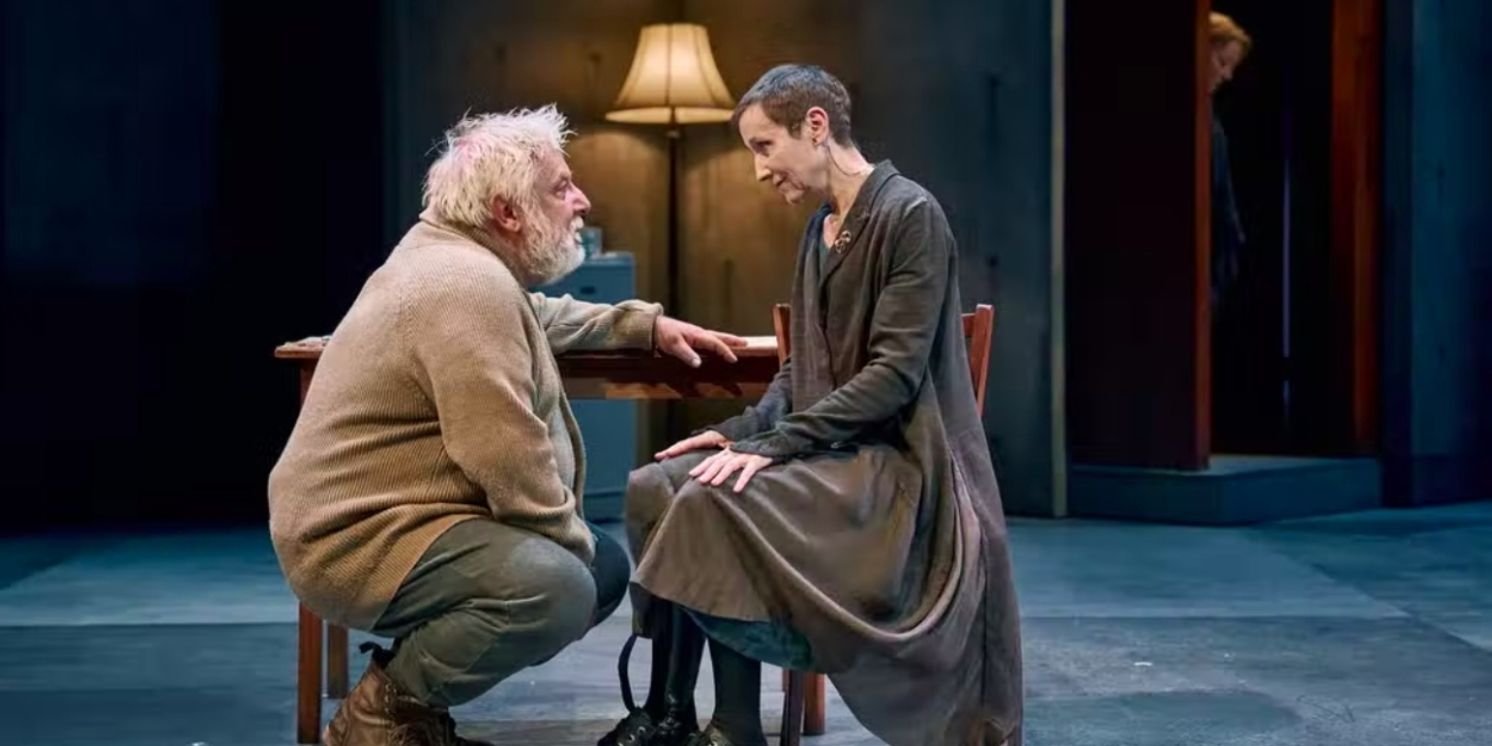Review: JOHN GABRIEL BORKMAN, Bridge Theatre
Nicholas Hytner's revival of Ibsen's penultimate play is as cold as a Norwegian winter.

![]() Henrik Ibsen's more famous to the general public for stories of forlorn love and class struggle, his deep symbolism, his frosty emotional landscapes. His canon, like many others, expands to an impressive number of lesser-known plays that for one reason or another aren't as revived. Nicholas Hytner's much-delayed production of John Gabriel Borkman is one of these.
Henrik Ibsen's more famous to the general public for stories of forlorn love and class struggle, his deep symbolism, his frosty emotional landscapes. His canon, like many others, expands to an impressive number of lesser-known plays that for one reason or another aren't as revived. Nicholas Hytner's much-delayed production of John Gabriel Borkman is one of these.
The playwright's penultimate script depicts the fall-out of Ibsen's own Wolf of Wall Street, meeting the eponymous man years after being jailed for fraud. The work revels in the isolation of its figures. It buries them in their past and doesn't give them a way out.
Simon Russell Beale takes on the disgraced mogul, Nicholas Hytner directs. Anna Fleischle designs the show. It's a winning team, but the piece leaves the audience as cold as a Norwegian winter nonetheless. Lucinda Coxton writes a new version, putting the characters' priorities in perspective by slipping in idioms relating to business and stocks inconspicuously.
Borkman's resentful wife Gunhild is played by Clare Higgings. The spouses are estranged in what used to be their own home; Gunhild refers to him as "the banker", to him she is "the one on the lower lever". While she is adamant about using their son Erhart (Sebastian De Souza) to reinstate their position in society, the patriarch almost needs to be reminded he has a child.
Erhart has other ideas and is ready to leave his life behind and join Fanny (Ony Uhiara), an older widow who took a shine to him, in Rome. Uhiara rightfully sticks out like a sore thumb. All broad vowels and grass-green fur-lined coat, she is a pop of colour, a big, flashy personality that owns the room much to everybody's displeasure.
The picture is completed by Lia Williams as Ella - Gunhild's sister and Borkman's initial love interest - and Frida (Daisy Ou), daughter of Borkman's friend Vilhelm (Michael Simkins) and a gifted pianist who sometimes entertains the old man as he paces "like a sick wolf in a cage".
Beale is a stooped, sullen, narcissistic, faded tycoon with a God-complex. His colossal individuality is now contained, diminished by shame and his soiled reputation rules every part of his existence. He spins his misanthropy into contempt, but lets his misogyny shine. He maintains he did nothing wrong. When he doesn't pace Fleischle's huge floor, he rocks in place unsettled and perturbed.
He picks up Simkins' sarcastic remarks for his own benefit, eliciting laughs from the public but berating and belittling the only friend who's stood by his side. Hytner toys with the wide space, turning the actors into each other's satellites. Their confinements become natural and the intimacy of their proximity turns alarming.
Beale recoils when Williams breaches the distance to rage at him; Gunhild feels cornered when he sits on the sofa with her during their altercation. Everything these characters do is argue endlessly. It's hard to find a cast so equally and deliciously irredeemable as these.
Fleischle frames them with unfinished, brutalist walls. A baby grand looks down from the first floor. Massive windows want to give the impression of openness. Every slight attempt at making the house a home is neutralised by the glacial feeling of the concrete and lack of comforts. The rooms are swiftly packed by stagehands in a smooth feat of precision as we move between floors.
Hytner shapes the play into a tale of pure acrimony and betrayal, maintaining momentum by driving it interval-less. The weakness lies at the core of the original script. Ibsen finds his characters at the end of their story, detailing the final agony of their lives. Borkman's crimes and his penance are explored so little that the focus turns to the women in his life and the rancour they share.
It's essential viewing for the Ibsen fanatics and it definitely has a few exceptional performances in it, but, all in all, this production doesn't add much to the current theatrical landscape.
John Gabriel Borkman runs at the Bridge Theatre until 26 November.
Reader Reviews

Videos

